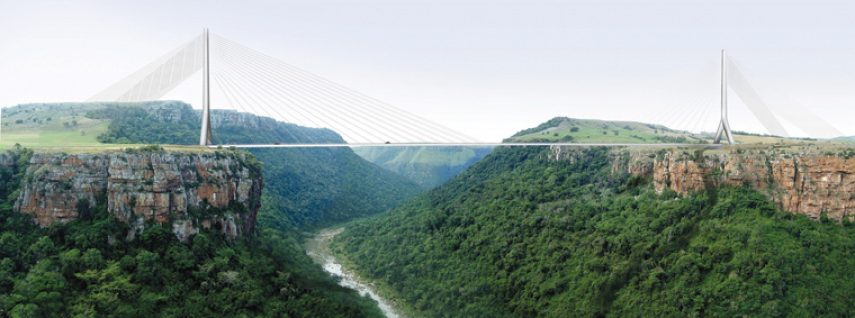ESTABLISHED businesses, particularly white-owned companies, with existing contracts with SANRAL must work with the roads agency to realise its transformation objectives if they wish to continue doing business with it.
That was the no-nonsense message from South African National Roads Agency (SANRAL) Chief Executive Officer Skhumbuzo Macozoma at a business function held recently at the East London International Convention Centre.
And with billions of rands in contracts up for grabs in the Eastern Cape over the next few years, there’s plenty at stake. The agency manages 4 952 km of roads in the province – 22% of its total 22 190 km which spans all nine provinces.
SANRAL’s flagship in the province is the N2 Wild Coast project, the 410 km stretch of road from East London to the Mtavuna River on the border between the Eastern Cape and KwaZulu-Natal. The agency also has some 116 projects in the initiation, design and construction stages in different parts of the province over the next three years.
Macozoma said the roads agency was unwavering in its commitment to ensure inclusive participation of black South Africans in the opportunities generated by SANRAL’s annual financial investment in the construction sector and related industries.
“We are geared to roll out the policy on 01 April 2018. However, ultimately our implementation date is subject to the approval of the policy by the Minister and also Cabinet,” he said.
Since 2009, SANRAL has injected R33.3 billion in the provincial road network. Of this, R11.7 billion was allocated for the past two years – R5 billion in 2016/17 and R6.7 billion for the current financial year ending in March 2018.
However, only 10% of SANRAL’s national R20 billion expenditure in 2016/17 was spent on black SMMEs.
“Changing this trend is a non-negotiable,” Macozoma said. “We want to see more black women, youth, people with disabilities and military veterans getting a sizeable increase in our spend and participating in our bursary and scholarship programmes, internships and Technical Excellence Academy.” The academy is based in Port-Elizabeth.
In essence, the success of SANRAL’s transformation policy rests on six levers:
- Ownership: buy-in from the large construction sector Equitable access to contracts
- across the Construction Industry Development Board grades
- Community empowerment: with emphasis on local sourcing
- Supply chains: black business access to equipment and materials
- Healthy competition: including toll operations and other supporting sectors in SANRAL’s business
- SMME and emerging contractor development.
The session was attended by more than 100 delegates including some kings, traditional leaders and structures of the provincial Congress of Traditional Leaders of South Africa (Contralesa) youth wing, as well as the South African National Civic Organisation (Sanco), South African Women in Construction (SAWIC), EC Black Contractors Association, Small Enterprise Development Agency (Seda), individual contractors and several youth business chambers from different parts of the province.
Buffalo River Bridge
Meanwhile, there’s renewed hope that the long-awaited Buffalo River Bridge city bypass could finally see the light of day following talks between SANRAL and the Buffalo City Metropolitan Municipality. The proposed bridge and arterial road link between the N2 and R72 would bring a welcome reduction in congestion to East London’s central business district by offering road-users a bypass to the west of the city. Buffalo City Head of Spatial Planning and Development, Nonceba Mbali-Majeng, said SANRAL had agreed to assist in a review of the feasibility study – including the costs. A progress report was recently tabled before council. An initial estimate in 1998 for the construction of the bridge and bypass put the cost at R300 million. Mbali-Majeng said this has since risen to an estimated R793 million, assuming the project is divided into four separate phases and contracts, and factoring in a 5% annual increase.

